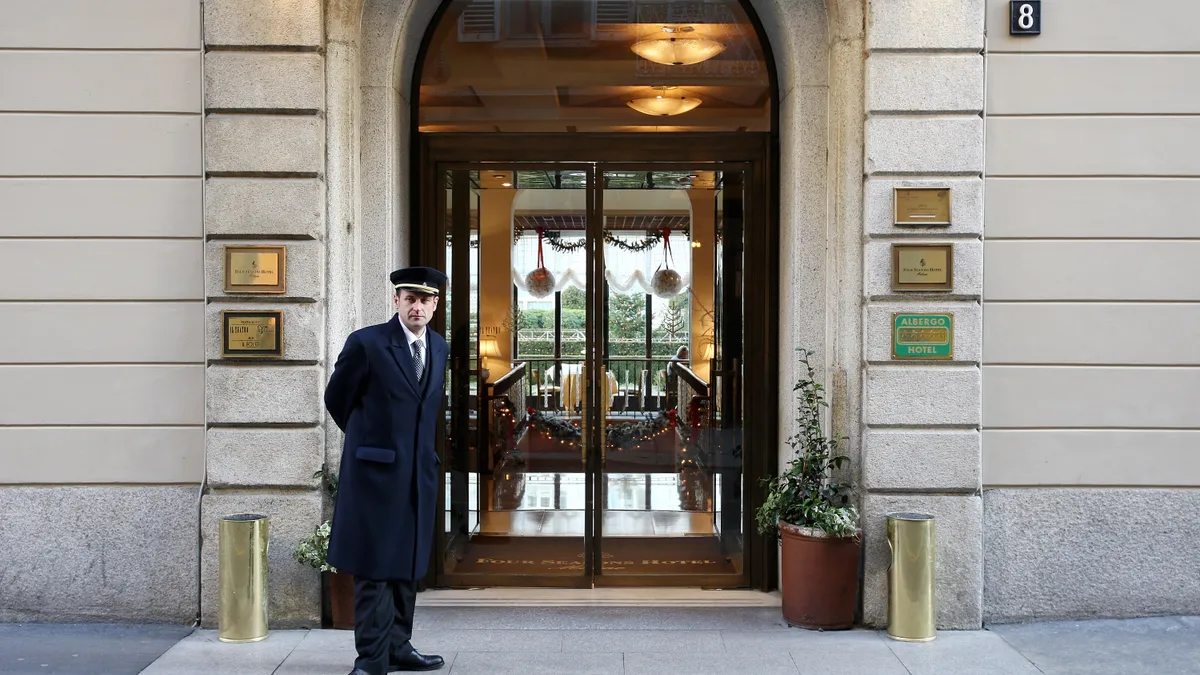Dive Brief:
- The World Travel & Tourism Council (WTTC) launched the Hotel Sustainability Basics on March 6 to provide hotels of all levels with a “globally recognized set of criteria that all hotels should implement as a minimum to drive responsible and sustainable travel and tourism.” The program also aims to provide hotels seeking to implement sustainability measures an achievable starting point.
- Hotel Sustainability Basics consists of 12 criteria in three general areas: efficiency, planet and people. Within these are goals for reducing energy, water, waste, plastic and carbon and increasing community benefits and staff equality.
- As a common framework, Basics hopes to unify the fragmented approach to sustainability in the hotel industry, providing options that can work for small, mid-sized and independent hotels that have struggled to make progress due to a lack of resources.
Dive Insight:
While the energy and motivation to address ESG issues — particularly sustainability — remains high, a shared set of metrics among all stakeholders remains elusive and often disjointed.
In its place, a patchwork of assessments and measurements has grown, including the UN Sustainable Development Goals (SDG), the International Sustainability Standards Board, the Sustainable Hospitality Alliance’s “Pathway to Positive Hospitality,” the Global Sustainable Tourism Council’s Industry Criteria for Hotels and many others. Furthermore, the U.S. Securities and Exchange Commission is also preparing to issue climate disclosure rules for public companies in the spring.
The SEC guidelines, once in force, may shape how sustainability is determined, tracked and reported in U.S. hotels, who, thus far, have largely taken the initiative and established sustainability goals and standards internally, albeit often with direction from benchmarks such as the UN SDGs.
The Wyndham Green Certification is a good example. “The Certification aligns with popular external programs, such as TripAdvisor Green Leaders and Green Key,” but it remains an “internal certification program” with targets ultimately set by Wyndham.
The new WTTC program — which bills its approach as “no property left behind” — may help push all hotels toward a shared set of metrics that are independently verified — or at least a greater recognition of the benefits a more unified approach can bring. By bringing in a wider range of properties, the WTTC program can strengthen that framework and push sustainability with greater force.
As Julia Simpson, WTTC president and CEO notes in a press release about the program, “Our research shows that most business owners are aware of their responsibility to the environment but need a step-by-step guide that is scientifically verifiable.”
Accor, Jin Jiang International, Louvre Hotels Group, Meliá Hotels International, Meininger and Radisson Hotel Group are among the hotel groups that have signed on to the Hotel Sustainability Basics program.










